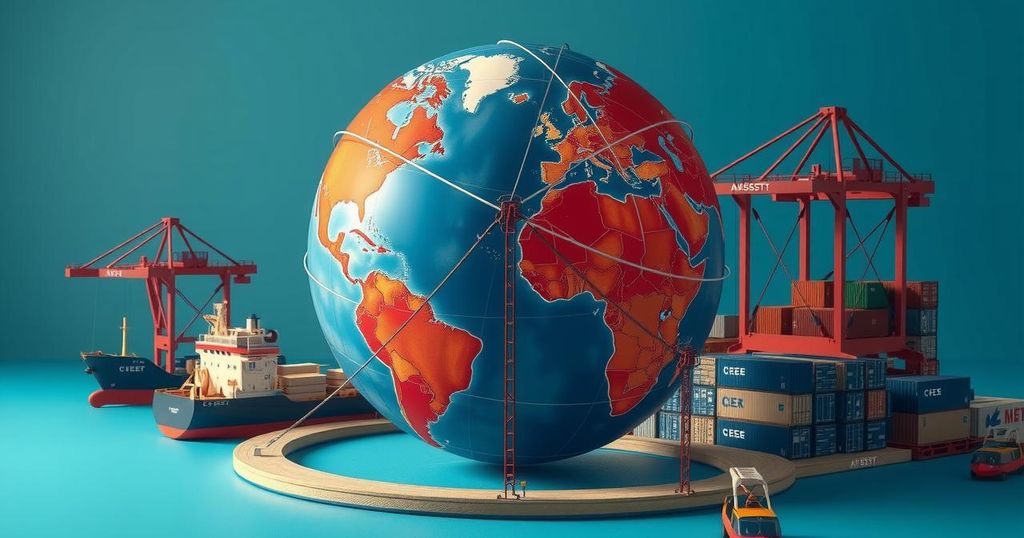Brazil’s Lula Promises Reciprocity Against U.S. Tariff Threats

Brazilian President Lula has vowed to respond in kind to any U.S. tariffs, calling for a mutually respectful relationship amid President Trump’s threats of increased tariffs. Lula’s comments reflect broader concerns over Trump’s protectionist policies, which may lead to trade conflicts with Latin America while emphasizing Brazil’s economic ties with the U.S. and potential shifts in alliances, particularly with China.
Brazilian President Luiz Inacio Lula da Silva stated that should the United States impose tariffs on Brazilian products, his administration would reciprocate in kind. Addressing reporters in Brasilia, Lula emphasized the necessity for a relationship grounded in mutual respect, particularly in light of President Donald Trump’s threats of increased tariffs on Brazil. Lula asserted, “If he taxes Brazilian products, there will be reciprocity,” reinforcing his commitment to a balanced and respectful exchange between nations.
Lula’s comments signal potential tensions in trade relations, following Trump’s previous import tax threats aimed at various nations, including Colombia. Lula asserted that respect is paramount, stating, “I will respect the US and want Trump to respect Brazil. That’s all.” The Brazilian leader’s response highlights a broader context of how similarly positioned Latin American countries may react to U.S. trade policies under Trump.
As Trump’s administration continues to discuss aggressive tariff policies designed to protect American manufacturing and border security, the potential for trade conflicts grows. The U.S. has threatened tariffs against Canada and Mexico, aiming to pressure these nations on issues like immigration and drug trafficking. Trump’s rhetoric aligns with an “America First” policy, establishing a precedent for prioritizing U.S. interests over international cooperation.
Moreover, Lula’s perspective sheds light on a complex economic relationship between Brazil and the United States. The U.S. maintains a trade deficit with Brazil while importing diverse goods such as coffee and aircraft. Conversely, Brazil imports energy and pharmaceuticals from the U.S., illustrating a symbiotic yet delicate trade balance.
The fear of a potential trade war catalyzed by the U.S. could result in shifts in the global economic landscape, empowering competitors like China. By increasing its investments and trade relations with South American countries, China has emerged as a significant partner, directly impacting regional dynamics previously dominated by the U.S. As tensions rise, countries in Latin America may seek alternative alliances, thereby reducing reliance on traditional trade partners.
The backdrop of this discussion highlights the ongoing issues surrounding U.S. trade policies under President Donald Trump. His administration has favored tariffs as a strategic maneuver for protecting American industries while creating friction with key allies in Latin America. President Lula of Brazil has taken a firm stance, promoting a relationship predicated on mutual respect to counter potential tariffs and reaffirm Brazil’s sovereignty in international trade dynamics. The responses from Latin American nations could potentially reshape economic alliances in light of U.S. actions.
In conclusion, Brazilian President Lula da Silva’s strong response to potential U.S. tariffs indicates a commitment to reciprocal trade relations grounded in mutual respect. As trade tensions escalate, especially under the Trump administration’s aggressive policies, the repercussions may extend beyond Brazil, influencing how other nations in Latin America approach their trade relationships with the United States. Lula’s determined stance may signal a shift towards greater autonomy in international trade for Latin American countries amidst the looming threat of tariffs and protectionist policies.
Original Source: www.aljazeera.com







